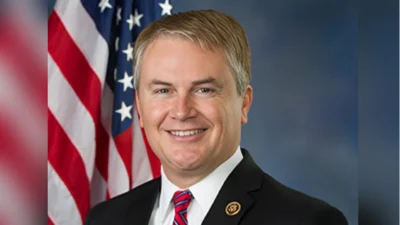Dear Commissioner Wenzel:
On Feb. 13, 2003, the Senate Finance Committee received the official report of the investigation by the Joint Committee on Taxation (JCT) relating to the collapse of the Enron Corporation. The JCT report entitled, "Investigation of Enron Corporation and Related Entities Regarding Federal Tax and Compensation Issues, and Policy Recommendations" (the Enron report) provides a detailed analysis of Enron’s complex tax transactions and the role played by promoters and advisers. Enclosed is a copy of the report for your information and use.
The JCT concluded that Enron’s structured transactions revealed a pattern of behavior showing that Enron deliberately and aggressively engaged in transactions that had little or no business purpose in order to obtain favorable tax and financial accounting treatment. For many transactions, Enron obtained sophisticated advice from a small pool of promoters and advisers, including its auditor, Arthur Andersen. According to the JCT, in some cases, if one adviser from the pool was not advising Enron in a particular deal, that adviser counseled the other party (the promoter) to the transaction. These incestuous relationships evolved among the participants in many of the transactions, with the result that Enron even acted as an accommodation party to deals designed primarily by Enron’s advisers to benefit others.
The Enron report serves as a wake-up call to all of us. Enron’s use of a close web of tax promoters and advisers - accountants, lawyers, and investment bankers - to construct complex schemes to avoid taxes and manipulate the financial statements raise serious questions regarding roles played by these promoters and advisers. In order to restore public confidence in our voluntary tax system, we must ensure greater accountability and integrity in the business community (i.e., corporate officers, accountants, lawyers, and investment bankers). That requires a firm, but fair approach.
We are interested in your views on JCT’s findings and recommendations as they pertain to the transactions involved and to those promoters and advisers who assisted Enron. In particular, we are interested in learning what action the IRS intends to take to determine whether the transactions described in the JCT report were promoted to other taxpayers. Does the IRS intend to conduct promoter audits to determine the extent to which these transactions were utilized by other taxpayers?
To what extent was the IRS aware of the transactions described in the Enron report? To what extent did IRS have access to the information provided to JCT and the Finance Committee? If the IRS was denied information, please explain the situation and the reasons for denying the agency access to the requested information. Was there any information contained in the Enron report, including opinion letters, that the IRS was advised by Enron or its advisers did not exist? If so, please explain. In addition, if IRS was provided information by Enron or its advisers, was this only after the committees began the investigation? Please explain your answer.
We are also interested in learning whether any of the promoters and advisers that Enron used in developing and implementing their tax shelter transactions are covered by Circular 230. We would appreciate being advised whether the conduct described by JCT merits discipline and whether referrals by IRS to state ethics officials and licensing boards are warranted.
Thank you for your prompt attention to this request, and we look forward to receiving your response.
Sincerely yours,
Max Baucus
Ranking Member
Charles E. Grassley Chairman
Enclosures
Source: Ranking Member’s News








